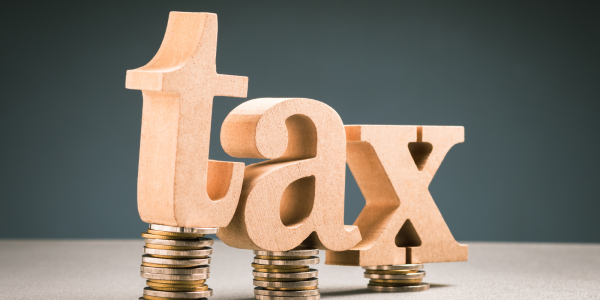I am a Scottish taxpayer: what Scottish income tax will I pay in 2023/24?
The Scottish Parliament has approved the rates and thresholds for Scottish income tax that will apply to the non-savings and non-dividend income of Scottish taxpayers during the tax year 2023/24.

Content on this page:
What are the rates and bands for Scottish income tax for 2023/24?
The rates and bands for Scottish income tax that apply from 6 April 2023 to 5 April 2024 are:
| Scottish income tax rates 2023/24 | Scottish income tax bands 2023/24 * |
| Scottish starter rate – 19% | £12,571 - £14,732 (£2,162) |
| Scottish basic rate – 20% | £14,733 - £25,688 (£10,956) |
| Scottish intermediate rate – 21% | £25,689 - £43,662 (£17,974) |
| Scottish higher rate – 42% | £43,663 - £125,140 |
| Scottish top rate – 47% |
£125,141 and above |
* The bands assume that you get the UK-wide personal allowance for 2023/24 of £12,570. The personal allowance is reduced if your ‘adjusted net income’ is over £100,000.
Am I a Scottish taxpayer?
The general rule is that you are a Scottish taxpayer if your home is in Scotland for more than half of the tax year.
If you are a Scottish taxpayer, you have to pay Scottish income tax on your non-savings and non-dividend income. You may also have to pay income tax according to the UK rates and bands if you have other types of income.
There is more information about who is a Scottish taxpayer in our tax basics section.
What income do I pay Scottish income tax on?
If you are a Scottish taxpayer, you pay Scottish income tax on your non-savings and non-dividend income. This means that you pay income tax according to the Scottish rates and bands of income tax.
Non-savings and non-dividend income includes:
-
Employment income
-
Profits from self-employment
-
Pension income (including the state pension)
-
Profits from rental property
If you have savings income, such as interest, or dividend income, you have to pay income tax according to the UK bands and rates on that income.
This means that if you are a Scottish taxpayer, you may have to pay income tax according to both the Scottish rates and bands and the UK rates and bands.
There is more information about this and an example of how to calculate your income tax if you have to pay income tax according to both the Scottish and UK rates and bands in our tax basics section.
How do I pay Scottish income tax?
HM Revenue & Customs (HMRC) collect and administer Scottish income tax.
HMRC collect Scottish income tax under the Pay As You Earn (PAYE) system from employees and pensioners. Scottish taxpayers who pay tax under PAYE should have a tax code that starts with the letter ‘S’. You can check your PAYE code on your payslips or form P60 (end of year tax certificate) from your employer or pension provider, or via HMRC’s online services by logging into your personal tax account.
Certain taxpayers throughout the UK have to complete a Self Assessment tax return. If, for example you are self-employed or have rental income, you may have to complete a Self Assessment tax return. In this case, HMRC will collect your Scottish income tax through the Self Assessment system.
If you have any questions about income tax, including Scottish income tax, you should contact HMRC.
Why do HMRC need my correct address?
It is important to tell HMRC your correct and up-to-date address, because:
-
HMRC use your address and postcode as the main way of working out if they think you are a Scottish taxpayer, and
-
HMRC send correspondence, including repayments of tax, to the address they have on file for you.
You can let HMRC know your up-to-date address and any changes to your address using their online service.
Where can I find more information about Scottish income tax?
You can find more information about Scottish income tax in our tax basics section.
